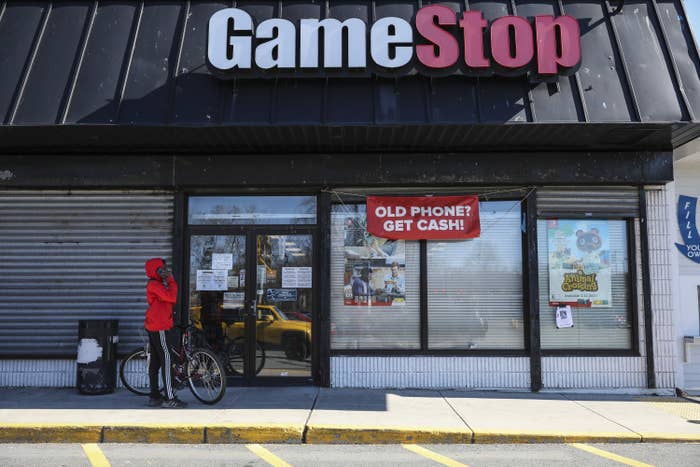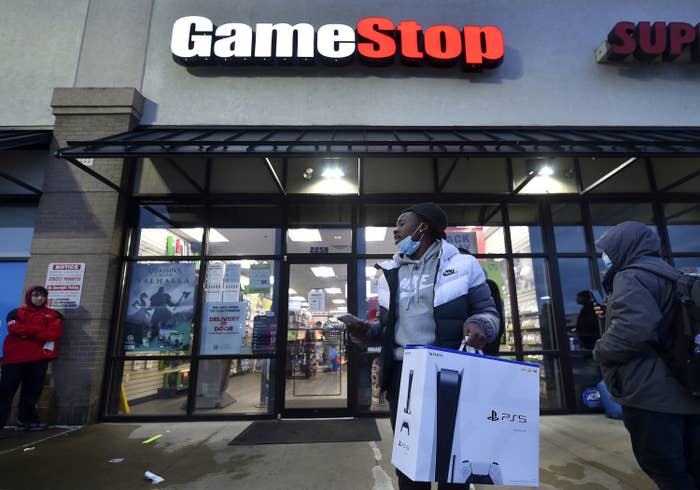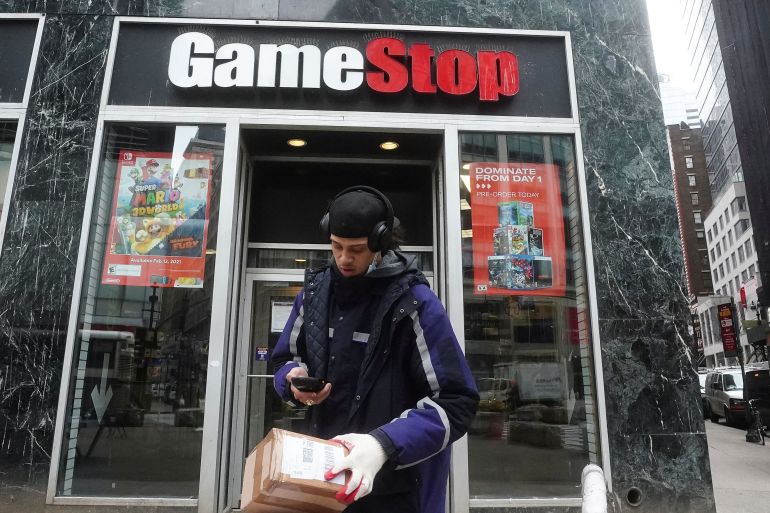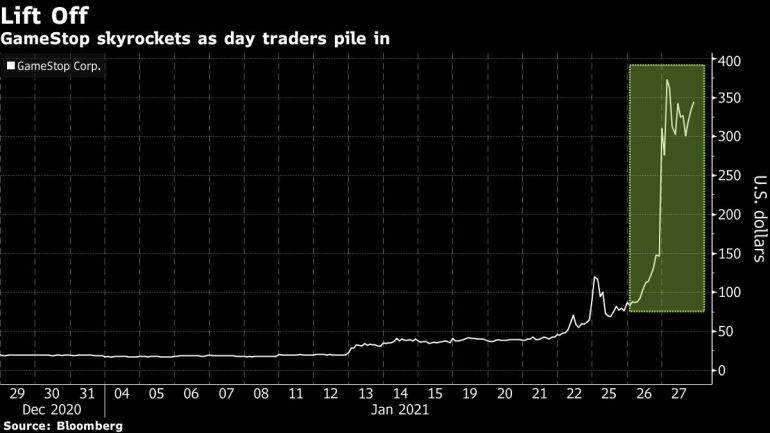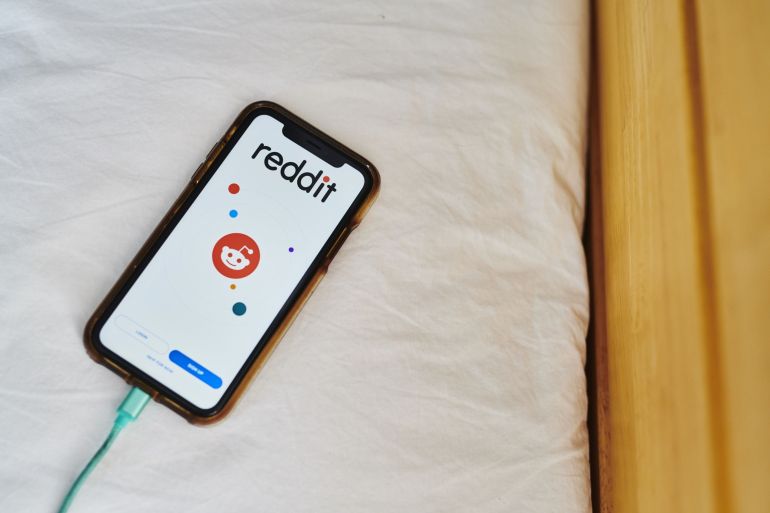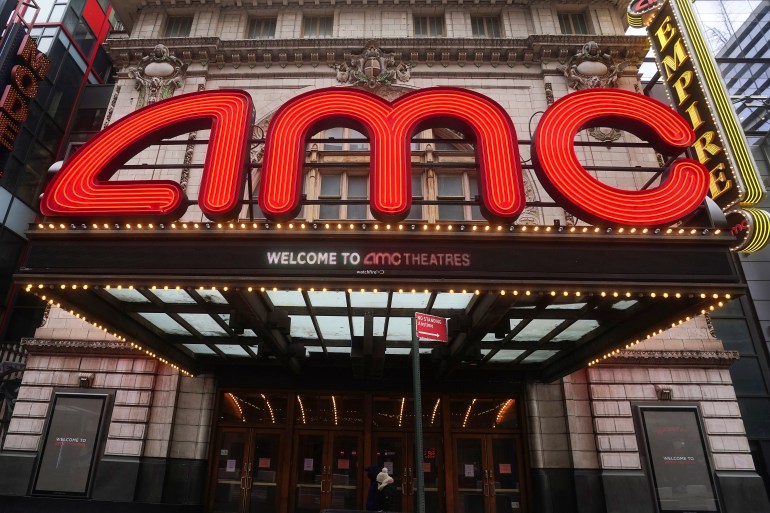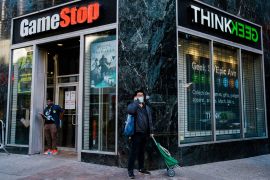Violent Protests Erupted In India. Then Calls For Police To Shoot The Protesters Went Viral On Twitter.
Twitter did not take “Shoot” off its trending topics for at least a couple of hours — after there was public outcry and after BuzzFeed News emailed asking for comment.Pranav Dixit BuzzFeed News Reporter
Reporting From New Delhi
Last updated on January 27, 2021
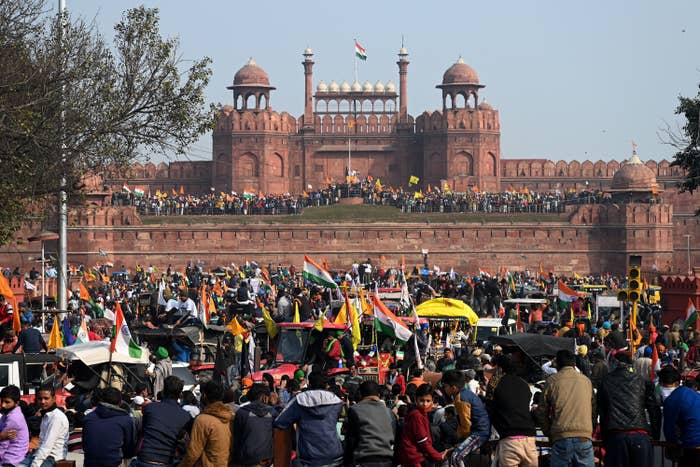
Sajjad Hussain / Getty Images
Farmers stormed New Delhi's Red Fort, a historical national monument, to protest against the government's new agricultural reforms.
Calls to "shoot" farmers protesting against controversial agricultural reforms in India trended for hours on Twitter on Tuesday, as thousands of tweets encouraging police brutality against them flooded the platform.
Violence erupted in India’s capital on Tuesday after thousands of farmers, who have been camped on the outskirts of New Delhi for nearly two months to protest against government agricultural reforms they say will hurt their livelihoods, entered the city and clashed with police. Demonstrators broke through police barricades around the city and stormed the Red Fort, a historic national monument. Police used heavy batons and fired tear gas shells. Authorities also shut down internet access in parts of the capital, something that officials in India frequently do to quash protests. At least one protestor died.
On Twitter, supporters of India’s Hindu nationalist government, led by prime minister Narendra Modi, called the protesting farmers “terrorists” and encouraged police brutality against them. “They are not farmers. They are worms, wearing fake masks of farmers,” read one of the viral tweets, which used the hashtag “#shoot.” “Request @AmitShah #shoot at sight is only option,” said another tweet, tagging India’s home minister and Modi’s right-hand man responsible for law and order in the country.

via Twitter
“Hit them with your batons, Delhi police,” the editor of a pro-government propaganda blog tweeted in Hindi. “We are with you.”
On Tuesday morning, “Shoot” was one of the top trending topics on the platform in India, in addition to the Hindi phrase “Dilli Police lath bajao” — which loosely translates to “Delhi Police, hit them with your batons."

Via Twitter

Ahmer Khan@ahmermkhan
#Shoot is trending in India. People asking the enforcement to stop the #FarmersProtest by shooting them.09:31 AM - 26 Jan 2021
Reply Retweet FavoriteTwitter: @ahmermkhan
"Shoot" stayed in the Trending section on Twitter in India for at least a couple of hours. It only disappeared after there was a public outcry and after BuzzFeed News emailed asking for comment. The company also deleted the blog editor’s tweet, saying that it violated Twitter rules, and suspended her account for 12 hours. Still, the Hindi phrase encouraging police to use their batons remained a trending topic for at least another hour. A search for “#shoot” revealed hundreds of tweets asking for police to shoot protesters.
“We have taken steps today to protect the conversation on our service from attempts to incite violence, abuse and threats that could trigger the risk of offline harm,” a Twitter spokesperson told BuzzFeed News. “Our team will take strong enforcement action judiciously and impartially on content, trends, Tweets and accounts that are in violation of the Twitter Rules. We strongly encourage everyone on the service to familiarise themselves with the Twitter Rules and report anything they believe is in violation. We are monitoring the situation closely and remain vigilant.”
A day later, Twitter issued a new statement saying that it suspended more than 300 accounts engaged in spam and platform manipulation. “We are monitoring the situation closely and remain vigilant, and strongly encourage those on the service to report anything they believe is in violation of the rules,” the company said.
In the United States, multiple tech platforms including Twitter permanently banned former president Donald Trump from the platform after his supporters stormed the US Capitol earlier this month. Trump had been banned from the platform “due to the risk of further violence,” tweeted Vijaya Gadde, Twitter’s legal, policy, and trust and safety head. Last year, the company put a warning label on one of the former president's posts about the Minneapolis protests which said: "[When] the looting starts, the shooting starts."
But experts have argued that Silicon Valley-based companies like Twitter and Facebook have a double standard when it comes to enforcing their own policies globally. In non-Western countries like India, which has been sliding into authoritarianism under the Modi government over the last few years, tech platforms frequently move slowly or do not take action against people who use them as a weapon to cause real-world harm.
Last year, for instance, Twitter let dozens of tweets doxing interfaith Hindu-Muslim couples remain on the platform until BuzzFeed News asked the company about them. In December, protesters gathered outside Facebook’s Menlo Park, California, headquarters, alleging that the social network was censoring content posted in support of the protesting Indian farmers. And the Wall Street Journal reported that Ankhi Das, a top Facebook executive in India, had prevented the company from taking action against a politician belonging to Modi’s party for posting hate speech, saying that doing so would hurt the company’s business interests.

Money Sharma / Getty Images
Farmers on a tractor prepare to remove concrete barricades installed by police as they stormed into India's capital on Jan. 26, 2021.
“Powerful interests everywhere have learned that Silicon Valley’s tools can be used to create a bonfire of human rights, but the only time the platforms care is when they get bad press,” Alaphia Zoyab, advocacy director at Reset, a tech policy nonprofit that aims to tackle the information crisis created by tech platforms, told BuzzFeed News.
“When Silicon Valley has to choose between protecting business interests or protecting human rights, they’re going to choose the former,” she added. “The fact is that their current business model is fundamentally incompatible with democracy and freedom because a determined troll army in the camp of those in power can just hijack the platform to demand violence.”
Gadde did not respond to a request for comment, and Twitter declined to answer whether accounts in India encouraging violence would be permanently banned.
UPDATE
January 27, 2021, at 7:14 a.m.
This story was updated to include a new statement that Twitter issued a day later.

Pranav Dixit is a tech reporter for BuzzFeed News and is based in Delhi.
